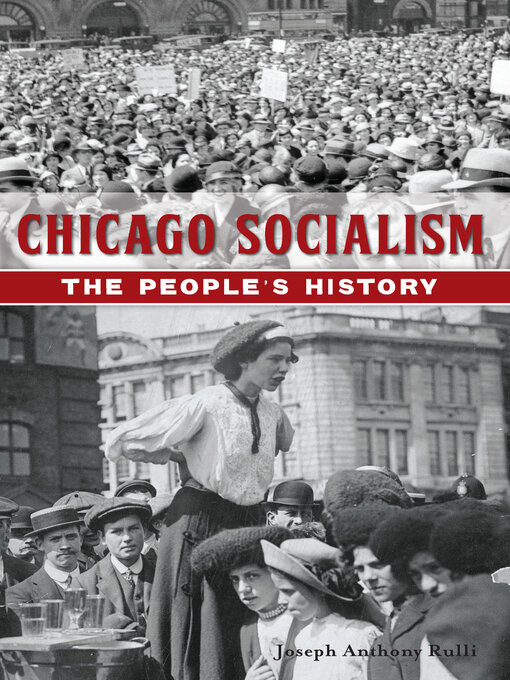-
Description
-
Details
As the major industrial center of the Midwest, Chicago provided a welcome home for Socialism in America. The city provided a soapbox for firebrand speechmaking, a home for political exiles, and a springboard for activism. When Josephine Conger-Kaneko began printing The Socialist Woman in 1909 and then ran for alderwoman in 1914, she could appeal to an audience and an electorate sympathetic to the Socialist Party in unprecedented numbers.
But Chicago was also a stronghold of mercantile and political interests that were strongly opposed to the Socialist Party. As a result, the city frequently served as a pressure cooker for the nation’s economic and ideological tension. That tension boiled over in incidents like the 1886 Haymarket Riot, the 1894 Pullman Strike, and the 1919 Race Riots. And that same tension continues to dictate the terms of engagement for contemporary protest movements and labor disputes.

Kindle Book
- Release date: April 13, 2021
OverDrive Read
- ISBN: 9781439667729
- Release date: April 13, 2021
EPUB ebook
- ISBN: 9781439667729
- File size: 2474 KB
- Release date: April 13, 2021
Formats
Kindle Book
OverDrive Read
EPUB ebook
subjects
Languages
English
As the major industrial center of the Midwest, Chicago provided a welcome home for Socialism in America. The city provided a soapbox for firebrand speechmaking, a home for political exiles, and a springboard for activism. When Josephine Conger-Kaneko began printing The Socialist Woman in 1909 and then ran for alderwoman in 1914, she could appeal to an audience and an electorate sympathetic to the Socialist Party in unprecedented numbers.
But Chicago was also a stronghold of mercantile and political interests that were strongly opposed to the Socialist Party. As a result, the city frequently served as a pressure cooker for the nation’s economic and ideological tension. That tension boiled over in incidents like the 1886 Haymarket Riot, the 1894 Pullman Strike, and the 1919 Race Riots. And that same tension continues to dictate the terms of engagement for contemporary protest movements and labor disputes.

-
Details
Publisher:
Arcadia Publishing
Kindle Book
Release date: April 13, 2021
OverDrive Read
ISBN: 9781439667729
Release date: April 13, 2021
EPUB ebook
ISBN: 9781439667729
File size: 2474 KB
Release date: April 13, 2021
-
Creators
- Joseph Anthony Rulli - Author
-
Formats
Kindle Book
OverDrive Read
EPUB ebook
-
Languages
English
Why is availability limited?
×Availability can change throughout the month based on the library's budget. You can still place a hold on the title, and your hold will be automatically filled as soon as the title is available again.
The Kindle Book format for this title is not supported on:
×Read-along ebook
×The OverDrive Read format of this ebook has professional narration that plays while you read in your browser. Learn more here.
